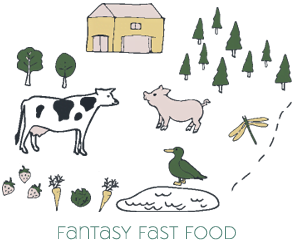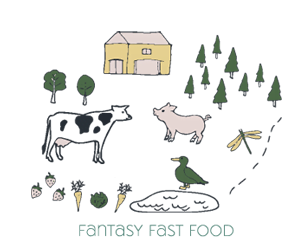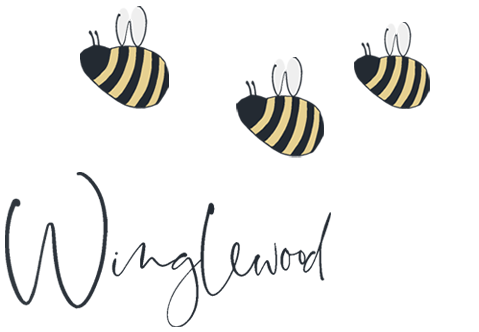If you’ve spent any time contemplating diet, then you’ll be aware of the overwhelm of contradictory information that’s out there.
The more the internet gives us access to just about everyone’s voice, the more we find people talking loudly about all sorts of solutions. None of them matching.
It also seems that these diets are becoming more and more extreme. Where it used to be about cutting a few calories for weight loss, now we might be encouraged to cut out entire food groups, consider our impact on animal welfare, or solve our own diseases by what we put in our mouths.
It’s dramatic, and it’s confusing. But I actually think that it’s an incredibly good thing.
Why good? Because confusion about our choices, at least reminds us that we have a choice at all.
We’ve been so fed upon dictated dietary guidelines, that we’ve become detached from our own instincts and responsibility for how we feel. This is particularly damaging, because the guidelines are not giving us the understanding that we need for really looking after ourselves. In fact, much of what we consider healthy can be contended by information that would suggest it’s bad for us. And vice versa.
Writing this introduction about food comes with a challenge. The emphasis of what I want to do with Winglewood, is to bring the information that can help inspire you to take steps forward, towards positive change. To me it’s important that this also avoids shedding light on problems, without offering actionable solutions. And that’s the part that makes this particularly difficult. We all have to eat, and that food needs to be accessible and affordable to us. Therefore making you feel concerned about what you’re eating makes me uncomfortable. But just let me be blunt, then follow me through to the end.
The Modern Diet Has Flaws.
Significant flaws. Which is of course the reason that so many people are desperately searching for solutions on the internet in the first place. In many cases, people are willing to try what may seem dramatic with their diet, because there’s some sort of problem that they’re needing help with.
I think it’s time to be open minded rather than argumentative.
Whether you are in favour of high fat, low fat, vegan, carnivore, low-fodmap, paleo, or perhaps skipping meals entirely, something that is consistent here is the movement away from the ‘norm’. Perhaps that is the part that we should be putting our focus on.
Nutrition Equals Health.
Something I’ve already acknowledged is the idea that diet can assist us with our problems. So in other words, what we eat can be considered part of our healthcare. This is an idea that feels pretty obvious to me. Our output is going to be affected by what we put in.
Most of us already acknowledge this at least to some degree. Perhaps we feel guilty at the idea of a take-out, an extra doughnut, or choosing the sausage roll over the salad. Maybe we have them as the odd treat because we enjoy them so much. But this guilt only exists because we consider them to be unhealthy, we believe that if we eat too much of them, they’ll have a negative impact on our bodies.
When you really consider this though, it becomes bewildering as to what is actually going on with our diets, and the food on our shelves.
Food is our fuel, it gives us energy. And it also builds us and allows our complicated biology to tick over.
If we over simplify things, we could say that we need fat and carbohydrates (sugars) for energy, protein for building, and vitamins, minerals and electrolytes to function.
But when we look at our ‘guilty’ pleasures, we avoid the sweets because sugar is bad for us. We avoid the doughnuts because fat is bad for us, we avoid the chips because salts (electrolytes) are bad for us, and we avoid excess meat because protein is bad for us.
How is it possible that all of the things we need, are the same as the things that are bad for us?
Many would say it comes down to balance and moderation. But I think there’s something more going on.
Fat Yet Malnourished.
We live in a world where quantity equals value. Get more for less and you consider it a bargain. But overwhelmingly food bucks this trend. Lower calories, is the selling point. When buying fuel you wouldn’t buy less for a higher price, but that is exactly what is promoted with low calorie foods. Doesn’t this underline that there is a significant misunderstanding within our diets.
If we aren’t eating something for calories, then why are we eating it? If we’re so concerned with becoming fat, why don’t we feel full and satiated enough to not eat. If food is fuel, why do we have a rising problem with obesity among populations who are less well off. And why does obesity exist alongside malnutrition?
I’m not going to attempt to answer these in any detail right here. I’m putting them out as food for thought, but I will say I feel this is all very much linked.
Quality has gone out of the window. And we’re all suffering for it.
Over processed fats, sugars, proteins and salts are not food. They contribute to poor health. The danger of industrial, or artificially produced trans fats is well known and has been influencing food regulations for years.
Well sourced and high quality fat, protein, sugar and salt can all be healthy. And quality nutrition is satiating.
Those are only my concepts right now, so don’t take them as fact. I don’t want you to take my word on anything here, I’m just trying to outline why I consider the need for this Series. We’re going to be delving in to explore these, and many other concepts, together.
Quality Food Nourishes. Over Processed Food Damages.
I want to be bold. I believe that considering even the most obscure sounding dietary advice out there, is actually a better position than sticking to what a colossal number of people are now calling ‘the norm’.
We’ve all heard the quote from Einstein; “the definition of insanity is doing the same thing over and over, but expecting different results.”
I’d say he’d call most of us insane for the way that we eat.
‘Modern’ diseases, such as heart disease, diabetes, cancer, dementia, obesity etc etc are all climbing, and the correlation with the ‘modern’ diet is undeniable.
OK, perhaps insane is a bit harsh. Eating something delicious without considering the impact that it might have on us in ten years, is just human.
But this really is a growing problem, and it isn’t just about needless suffering down the line that we’re signing ourselves up to. Disease doesn’t generally just switch on overnight. These things are more of a spectrum. They creep in slowly, and you just think that being fatigued and unenthusiastic for life is an acceptable norm.
“Research suggests that 1 out of 3 adults has prediabetes. Of this group, 9 out of 10 don’t know they have it.”
We’re feeling old way before our times, and we’re too busy to even notice.
I don’t know about you, but I’d like to be the woman who’s skipping at ninety, if I’m still hanging around at that age. I actually think that’s perfectly possible, and feel that good nutrition is going to play a huge role.
Fantasy Fast Food, like all of the Series, is named on a vision. Right now it’s a vision that feels far fetched, but I can’t accept or even understand why it has to be that way.
The vision is simple. Healthy, nutritious, delicious food that is convenient. Whether that be at a restaurant, a drive through, or the shelves in the supermarket. Let’s have real nutrition that’s accessible.
We shouldn’t be surrounded by poisonous temptations.
So I suppose the first challenge to all of this, is to answer the question of ‘What is Healthy?’ This is where the Fantasy Fast Food Series will start, and I’m hoping you’ll join me in being open-minded, as we explore and discuss this challenge from numerous points of view.
We’re in search of some basic understandings that can take us to improvements from where we’re at now.
What’s Healthy For Us, Is Healthy For The Planet
This Series isn’t just about our health.
Food production has an enormous effect on the environment, wildlife and farmed animals. The need to supply all of us with food on a daily basis, means that agriculture is responsible for some of the biggest impacts we make to the planet. It seems to me, then when we look at the highly processed foods that are leading to disease, they come from practices that are also causing suffering to the environment and animals.
We could look at this as a good thing. It increases the motivation to look after ourselves, because the benefits are amplified. But when these practices are so wide reaching and long established, it gives a hint at the scale of the challenge there could be, in improving the health of our food supply. Still, I’ve always loved a good challenge!
Every opinion counts. I’ll be reaching out to ‘experts’ within different fields as we piece this Series together, but don’t underestimate the value of what you can share. Whether you are confused about diet, have an experience that people might learn from, or are a professional in one of these areas then I’d love to hear from you!
Continue Reading:
Our food choices affect the ocean! Watch my short animation to see how it’s all connected.







In the not-so-distant past I’ve lived on a steady diet on processed food and bad choices. I did that for a long time, so I might face the results of that in the future. I’m in a battle with myself almost every day, trying not to go down the same route. Luckily, my wife and I motivates eachother. She’s a fenomenal cook, and I’ve re-learnt the joy of cooking. Maybe this also is connected to my hobby, woodworking – I am pursuing a hand tool approach (mixed with a few power tool “candybars” as sweets in moderation is a good thing) and I am trying to work traditional. And like the wall shelf I built – of modern design, but with old types of joints – I find myself making the food I grew up with, but with a different twist. I make my gravy from scratch, instead of pouring water on a bag of powder and heating it up. Tastes WAY better.
We need to re-educate ourself back to the ways our grand- or great grandparents did it. Hens are tossed as garbage when they stop laying eggs, in stead of being sold as perfectly good – and delicious – food. Hen fricassée tastes so incredibly good, and can be made very healthy. Baking bread with Emmer in stead of wheat not only is delicious, but it supports the farmers that produce a different type of grain. Wheat is abundant, but what if an illness emerged that killed off most of the wheat? Diversity is good.
I find the link to my woodworking both entertaining and thought-provoking. Learning my daughters how to grow their food as well as using hand tools is one way to support sustainability. When the kids know how to grow potatoes and how to make a spatula, they are being equipped for a life that may or may not be very different than what we experience today…
Hi Vidar, I’ve also been a culprit of bad food choices in the past. I think a hectic life and a fairly poor understanding of nutrition makes processed food the obvious choice for many of us. I never considered it a bad diet at the time but when I started making changes I was shocked at how much positive impact it started to make on my body and energy levels. And I agree, the joy of cooking is something that’s largely been lost, and finding a new excitement for the process and the tastes as you describe, goes such a long way to making healthy food the choice we want to make rather than something we’re reluctant about!
Your daughters are very lucky! A mixture of skills that connect them with where things come from is something that they’ll always keep 🙂
I agree that we can all make choices to improve our own physical and mental health. We are all aware of little “tricks“ and adjustments to our lifestyles that work for us personally. These small changes (and sharing them with others) can have the butterfly effect and be unexpectedly beneficial to the whole. One of these for me is the philosophy of Taoism (which really isn’t a religion or as wacky as it sounds ha ha) but just old fashioned common sense about being in balance with the natural world. I’d encourage everyone to “dip their toes” in this water as part of their drive to be healthier, more sustainable and happier.
I particularly support your idea that the changes we make are not just for ourselves but for our children and their children – it is our responsibility as parents and wiser, more experienced adults to pay it forward and at least try to do our bit. We should feel good about this and be joyful about the experience. Others may want to join our journey to find out why we look so happy and healthy – much better to inspire and encourage than to scare them with bad news and old-testament predictions of doom!
Thanks Richard, you sum it up so well. It’s a far more joyful ambition to inspire through demonstrating being happy and healthy, than pushing for change through guilt or fear! Taoism is a word I’ve spotted here and there but I’ve never taken a dive to see what it’s all about (perhaps because it does sound a bit wacky at first!). I’m intrigued now you’ve brought it up though so I may just take a peek – thank you!